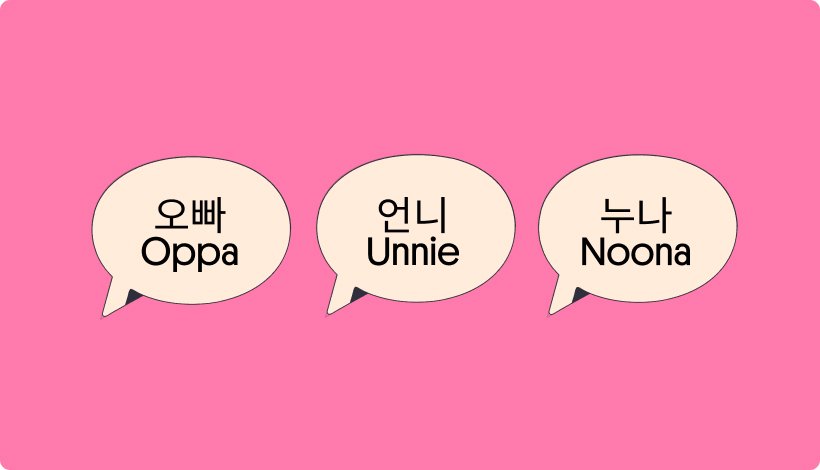In Korean culture, honorifics play a vital role in how people interact, showing respect, hierarchy, and intimacy. One commonly heard term in K-dramas and daily Korean life is “noona.” For non-native speakers and Korean pop culture fans, understanding the noona meaning Korean context expresses is essential. This article explores what “noona” means, how it’s used, its emotional nuances, and its place in Korean social structure.
Profile Biographie Table
| Term | Description |
| Term | Noona (누나) |
| Language | Korean |
| Literal Meaning | Older sister (used by males) |
| Pronunciation | [noo-nah] |
| Used By | Males referring to older females (non-relative or sibling) |
| Context | Respectful or affectionate term in family, social, and romantic settings |
| Gender Use | Exclusively used by males for females older than them |
What Does Noona Mean in Korean?
The word noona (누나) is a gender-specific term used by a male to refer to an older sister or an older female friend. Unlike English, where “sister” can be used universally, Korean differentiates based on the gender of the speaker and the person being addressed.
In familial settings, a younger brother would call his older sister noona. However, it’s also commonly used in friendly or romantic contexts to express closeness and respect.
Cultural Context of Noona in Korea
In Korea, age and hierarchy are deeply rooted in daily life. People often ask each other’s age to determine how to address them properly. Noona is not just about age but also reflects a comfortable and often affectionate relationship.
It is normal for a younger male to call an older female noona even if they are not biologically related. This is common in schools, workplaces, and social circles. It adds a personal, polite tone to the relationship.
Noona in K-Dramas and K-Pop
Fans of Korean dramas or K-pop likely hear the term noona frequently. Male characters use it to express care, admiration, or even flirtation toward an older woman. This is especially popular in noona romances, where a younger man falls in love with an older woman.
In K-pop culture, fans may also refer to female idols as noona, especially if the fan is younger and male, which creates a more intimate and respectful fan-idol dynamic.
Noona vs. Other Korean Honorifics
Korean uses multiple honorifics based on age and gender. Here’s how noona compares:
- Oppa (오빠): Used by females for older males (brother, boyfriend, male friend).
- Hyung (형): Used by males for older males.
- Eonni (언니): Used by females for older females.
So, noona is the only term used by a male speaker for an older female.
When Not to Use Noona
Although noona is common, it must be used with discretion. It should not be used:
- In formal business settings unless there is a close personal bond.
- Toward someone who prefers to be addressed more formally or differently.
- To address a stranger, even if they are older and female—it may come across as overly familiar or disrespectful.
Always observe how others are addressed in a group before using honorifics like noona.
Emotional Weight of the Word Noona
The noona meaning Korean language conveys is not limited to familial roles. It carries emotional subtleties:
- Affection: Often used to show care, love, or admiration.
- Trust: Indicates a bond where the younger male relies on the older female.
- Flirtation: In romantic settings, it can signal interest or be used playfully.
This makes noona a unique blend of respect and warmth, which few English terms can match.
Can Women Be Called Noona by Other Women?
No. Noona is specifically used by males to refer to older females. Women refer to older women as eonni (언니). Using the wrong honorific could create confusion or discomfort in social dynamics.
Real-Life Example Usage of Noona
Let’s say a boy named Minho is 20 years old, and he has a 25-year-old female friend named Jiwoo. If they’re close, Minho would naturally call her “Jiwoo noona.”
If Minho were romantically interested in Jiwoo, he might still call her noona, and it might even become a term of endearment.
Noona in Romantic Relationships
The noona dynamic is often romanticized in Korean media. A younger male dating an older woman might still use noona instead of her name, blending respect and tenderness.
However, once the relationship becomes more intimate, some couples may drop titles altogether. Still, noona retains a special charm, often seen as sweet or even sexy depending on context.
Variations in Dialect and Intonation
While the word itself remains the same across Korean dialects, the tone can affect its meaning. A playful, rising tone may indicate affection or flirtation, while a neutral tone simply shows respect.
How to Pronounce Noona Properly
Phonetically, “noona” is pronounced as [nu-nah], with a soft “n” sound. Avoid stressing either syllable too much. Proper pronunciation ensures the term sounds natural and respectful.
Conclusion
Understanding the noona meaning Korean culture reflects allows deeper insights into not just language, but also values like respect, affection, and hierarchy. Whether used in families, friendships, or romantic relationships, noona bridges generational and emotional gaps with warmth and grace.
Read more: GoMyFinance .com: Your Trusted Gateway to Smart Financial Solutions
FAQs About Noona Meaning Korean
A1: It means “older sister” but is used by males to refer to older females in a respectful or affectionate way.
A2: No, girls use eonni (언니) to address older females.
A3: No, it can be used for older female friends or romantic interests too.
A4: Male idols might call older female fans or staff noona to show respect and closeness.
A5: Yes, especially in noona romances, it’s often used as a term of endearment.
A6: Only if used without permission or in a formal setting. Context is key.


